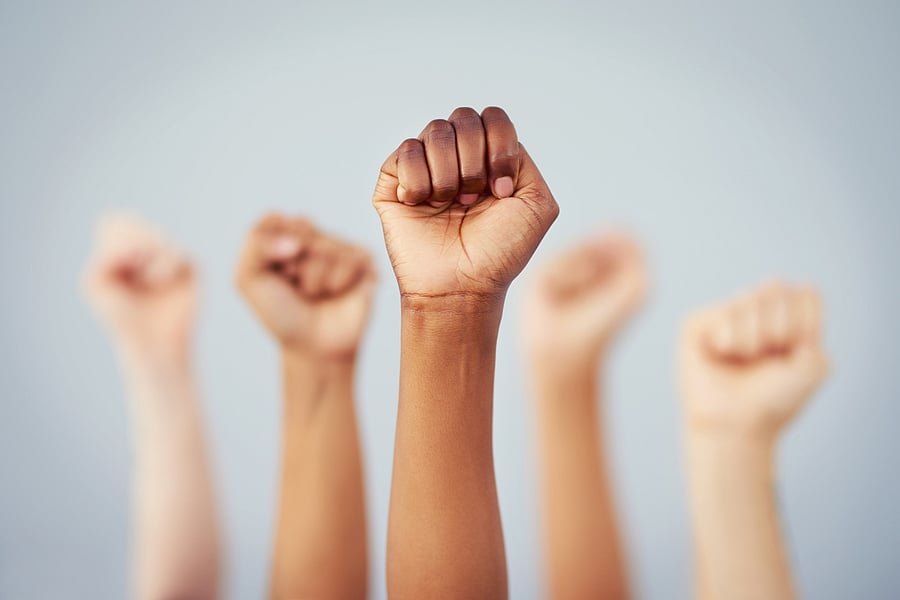
The novel coronavirus has created the biggest planetary crisis in generations sending shock waves through national health systems, economies, and societies around the world. We are faced with an unprecedented and an escalating situation, where both demand and supply is choked. Governments are focused on flattening the pandemic curve, reviving their economies, and forcing decision-makers to multitask. The situation necessitates more leaders, perhaps even heroes, more than ever before.
Does gender have a role to play in crisis leadership?
The leadership qualities of women have been questioned time and again in all walks of society across the world although the evidence tells a different story. Data shows that women bring plurality, clear-sightedness, analytical perseverance, and inclusivity to decision-making. A study from Deloitte posits that teams with inclusive leaders are 17 per cent more likely to report that they are high performing, and 20 per cent more likely to say they make high-quality decisions.
The current pandemic is a moral dilemma in addition to an economic dilemma, with decision makers weighing lives against livelihoods. The results of a Canadian study showed that female directors achieved significantly higher scores than their male counterparts on ‘Complex Moral Reasoning’, which essentially involves making consistently fair decisions when competing interests are at stake. Another survey of board directors showed that women are more likely to consider the rights of others and to take a cooperative approach to decision-making, which is essential in a crisis like this.
Study of hormones
Dr Mara Mather, a cognitive neuroscientist at the University of Southern California found that the tendency to take more risks when under pressure is stronger in men who experience a larger spike in cortisol, a stress hormone. A relatively smaller spike in cortisol in women seems to improve decision-making performance under stress. The study concludes that women under stress tend to make more advantageous and safer decisions, looking for smaller and surer successes. Women leaders across the world are garnering applause by stepping up in combating COVID-19.
That said, although studies quoted here overwhelmingly support leadership qualities of women, we can find an equal number of studies extolling the leadership qualities of men. It is futile to make an argument for preferring one over another. Bringing parity means bringing both men and women to a relatively equal level of a playing field. The reality is that we haven’t managed to achieve that level playing field just yet.
India’s story
India has a history of electing female leaders to top positions. India’s Minister of Finance and Corporate Affairs and President of FICCI are women. Indian women, such as the Chief Scientist of WHO and Chief Economist of IMF, are providing crucial leadership in the global arena during the COVID-19 crisis.
However, the overall picture isn’t delightful. India slipped to 112th spot from its 108th position in 2018 in the World Economic Forum’s Global Gender Gap Index 2020, which covered 153 economies. India ranks 18th in ‘Political Empowerment’ category but the positions in other sub-indices (‘Economic Participation and Opportunity’, ‘Educational Attainment’, and ‘Health and Survival’) is gloomy. There is still a 31.4 per cent average gender gap that remains to be closed globally.
With the COVID-19 outbreak, a harsh spotlight has been shone on neglected equality gaps. Women and girls are disproportionately impacted due to their relatively disadvantaged situation, distinct social obligations and responsibilities, and the high prevalence of gender-based violence.
Diverse leadership for better direction
Michael Ryan, Executive Director of WHO said India has a tremendous capacity to deal with the coronavirus outbreak as it has the experience of eradicating the small-pox and polio through targeted public intervention. Women participation has been crucial in these achievements. To achieve a polio-free world, the Global Polio Eradication Initiative is committed to identifying and addressing gender related barriers to immunisation, communication and disease surveillance and to advancing gender equality.
UN Women is cooperating with decision-makers to ensure gender is integrated in national and sub-national COVID-19 response plans, not only to achieve better outcomes for women and girls but also to achieve better outcomes for everyone.
COVID-19 showed us that even the leadership team of developed countries can fail to deliver. In an impending crisis, we need a diverse set of leaders for a better direction. By bringing to the fore the untapped reservoir of women leadership in all walks of life, we will be more resilient to tackle future crises.
(Saumya Pandey and Kowthamraj V S are Young Professionals at NITI Aayog.)
Disclaimer: The views expressed above are the author’s own. They do not necessarily reflect the views of DH.